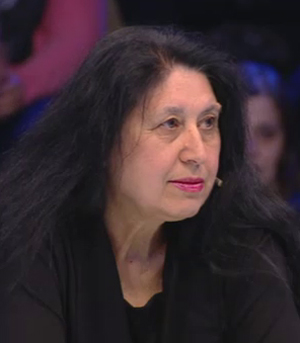100 years ago on October 14th, Bulgaria joined the First World War. This happened after the Balkan Wars in 1912 and 1913, in which Bulgaria aimed to free territories with predominant Bulgarian population. The first Balkan War was successful but the second led to a catastrophe. The decision of Tsar Ferdinand and the government of Vasil Radoslavov for Bulgaria's entry into the global conflict is assessed today as a political mistake. But what was the public sentiment back then in the country after the "lost victories" in the Balkan War and Bulgarian-populated lands remaining under foreign rule? According to Assoc. Professor Lisbeth Lyubenova, from the Institute for Historical Studies at the Academy of Sciences this is a very complex topic. Recently discovered documents from the personal archive of Vasil Radoslavov indicate that until the very last moment Bulgaria had been searching for a way to avoid the war. Immediately after the Second Balkan War, back in 1913th, talks started and Radoslavov was trying to receive the so-called armed neutrality. When the two opposing sides in the war were defined, negotiations started with countries of the future Entente, as well as with Turkey. The Bulgarian authorities tried to negotiate compensations for Bulgaria if it did not join the war.
 "This is a very long and complex diplomatic correspondence, Associate porffesor Lyubenova says. And it really shows the desire of the Bulgarian government to avoid war. There are some interesting documents which show Radoslavov was an idealist who imagined that the great powers would fight each other until exhaustion and after that Bulgaria would place on the diplomatic table the question of Macedonia. And since no one would have wanted to fight anymore, the problem would be solved. It did not happen this way as provocation shots on the Bulgarian -Greek border were soon to be fired. Turkey also did not want to link territorial compensations to the Bulgarian neutrality, especially in the event of Bulgaria joining Germany. Ultimately, just before October 1915 a note that urged Bulgaria to choose a side was received. Bulgaria was allowed neither by its neighbors, nor by the Great Powers to stay neutral.”
"This is a very long and complex diplomatic correspondence, Associate porffesor Lyubenova says. And it really shows the desire of the Bulgarian government to avoid war. There are some interesting documents which show Radoslavov was an idealist who imagined that the great powers would fight each other until exhaustion and after that Bulgaria would place on the diplomatic table the question of Macedonia. And since no one would have wanted to fight anymore, the problem would be solved. It did not happen this way as provocation shots on the Bulgarian -Greek border were soon to be fired. Turkey also did not want to link territorial compensations to the Bulgarian neutrality, especially in the event of Bulgaria joining Germany. Ultimately, just before October 1915 a note that urged Bulgaria to choose a side was received. Bulgaria was allowed neither by its neighbors, nor by the Great Powers to stay neutral.”
"In 1915 when we entered the war, Bulgaria had actually assessed well the political forces at the moment. Interestingly, almost all of Bulgaria’s diplomatic representatives predicted the end of Germany, as the war was growing, and the Germans did not have enough resources, especially at sea. England and later the United States dominated there. On land, however, the Germans were victorious. At a certain point Bulgarian diplomats were saying that Turkey and other allies of Germany were becoming more relentless because of the progress they made. The Entente was shocked by the way Belgium was crushed so quickly. When Bulgaria joined the war, Germany had already pushed away Russian troops, showing its potential to win on land despite losing colonies in China and Africa. "
During the First World War the Bulgarian Army achieved a series victories: in Macedonia, Dobrudzha, and elsewhere, but the war was lost because Bulgaria sided with the Central Powers. According to Associate Professor Lyubenova, the enthusiasm during the Great War, was not the same as during the Balkan Wars. They seem to be the top of Bulgarian patriotism on a quest to solve the national question.
"Initially, when the war began, patriotism was running strong, but at the end this was not so because of a number of reasons. First, Bulgaria could not resist economically, even though it was more or less a closed economy and was not associated with a particular active foreign trade. Bulgaria did not have a well developed industry. It was a very harsh time for the population, as war continued more than expected. Moreover, military reports show rations on the front were reduced. Soldiers received half a bread a day,” the associate professor says.
How should the wars Bulgaria fought for national unification be taught in local schools?
Eventually, pragmatism and economic interests dominate and no one is interested in the sufferings of small nations, Associate professor Lisbeth Lyubenova says in conclusion.
English: Alexander Markov
October 27 marks the 165th anniversary of the birth of Academician Aleksandar Teodorov-Balan, who was the first theorist of the Bulgarian literary language, phonetics and grammar. He was born was born in 1859 in the village of Kubey, Bessarabia...
Over 150 exhibits from 14 Bulgarian museums will take part in an exhibition entitled "Ancient Thrace and the Classical World" . The exposition will be opened on November 3 at t he Getty Museum in Los Angeles and will continue until March 3, 2025...
On October 26, the Bulgarian Orthodox Church marks the Day of Great Martyr St. Demetrius of Thessaloniki, considered one of the greatest saints. In Bulgaria, his name is also associated with the restoration of the Second Bulgarian..
Today, the Bulgarian Orthodox Church honors the holy great martyr Varvara - a maiden from a noble family, beheaded for her Christian faith at the..

+359 2 9336 661
